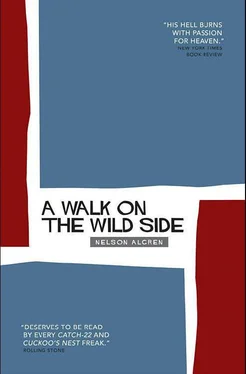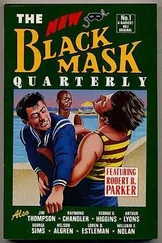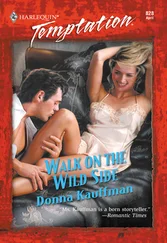Not the least of Nelson Algren’s charms to those of us not American is the way he is at once both entirely of the USA in all its extraordinary vibrancy, and yet able to tally and report accurately and honestly the immense human cost of that vibrancy: a USA no longer a new and great dream of exploding possibility, but a nightmare of receding hopes.
‘The pimps,’ he wrote of 1930s New Orleans in A Walk on the Wild Side , ‘didn’t seem to catch on that the country was progressing downward to new rates of normality’, describing mid-twentieth-century perfectly.
And Algren achieved all this in a lush language at once immediate and vernacular, but steeped in the tradition of his culture’s greatest writers: the poetry of his sentences harked back to Whitman; his wry humour and vernacular power to Twain; his novelistic largeness to Melville; his pained humanity to Fitzgerald.
But everything in Algren is transformed into a particularly American agony, comic and tragic, and he created an idea of a spiritually compromised USA so potent that for some decades no one wished to know of it.
Frequently categorised, with the passage of years no category seems sufficient to label the rich, fecund world of Algren’s greatest works. He was a naturalist who wrote unnaturalistic prose; an absurdist whose work reeked of reality; a realist whose best effects are often comic, a determined stylist who in the end believed passion mattered more than style; a passionate writer who fully understood that the measure of great writing was in its capacity to escape the writer’s intentions, politics and passions.
Those who ascribed to him a programme, an ideology, failed to understand Algren’s humility in the face of the power of art to tell truths often unknown to the artist and even unpalatable to them. He believed good writing came out of compulsions unknown to the writer.
‘A writer who knows what he is doing,’ he once said, ‘isn’t doing very much.’
Algren’s characters fail even at failure, they manage to mismanage crime, vice, sin; nothing is so worthless that it cannot be lost. Algren’s mean streets are revealed by the passing of time to be both as real and as allegorical as Kafka’s courtrooms and castles. It is a hell, and it is the ultimate test of our humanity.
It would be too simple to see Algren simply as a victim of the Cold War. His literature threw down a question to the fundamental nature of the USA.
‘So accustomed have we become to the testimony of the photo-weeklies, backed by witnesses from radio and TV,’ Algren wrote, ‘establishing us permanently as the happiest, healthiest, sanest, wealthiest, most inventive, tolerant and fun-loving folk yet to grace the earth of man, that we tend to forget that these are bought-and-paid-for witnesses and all their testimony perjured.’
The American dream, the American century, the American way, the American empire: Algren didn’t buy any of it. The USA, Algren declared in an interview in 1963 was ‘an imperialist son-of-a-bitch’, and Algren did not conceive the role of the writer to sing of its triumphs.
‘The hard necessity of bringing the judge on the bench down into the dock’, Algren wrote, ‘has been the peculiar responsibility of the writer in all ages of man.’
Like Chekhov, Algren believed a writer’s role was to side with the guilty.
‘American literature is the woman in the courtroom who, finding herself undefended on a charge, asked, “Isn’t anyone on my side?”… More recently, I think American literature is also the fifteen-year-old who, after he had stabbed somebody, said, “Put me in the electric chair – my mother can watch me burn.”’
And so Algren wrote with courage and love against the grain of the American empire he clearly recognised coming into being around him, as doomed as a bard of slaves would have been in first-century Rome.
‘The American middle class’s faith in personal comfort as an end in itself is in essence a denial of life,’ Algren wrote in Nonconformity . ‘And it has been imposed upon American writers and playwrights strongly enough to cut them off from their deeper sources.’
According to his friend Kurt Vonnegut, ‘no matter how famous he became, he remained a poor man living among the poor, and usually alone.’ But there was about this something that went beyond identification, or Algren’s belief in people. For Algren it seems that it also enabled a form of spiritual transcendence that he found necessary in order to write.
‘Innocence is not just the lack of something,’ Algren once said. ‘Innocence is an achieved thing. You can’t be unworldly without first being worldly… to be an innocent in the best sense is to have that kind of unworldliness that comes out of worldliness, to be able to see how people waste their whole lives just to have security.’
The American Dream was one of materialism, its hope was that even if you had lost everything yesterday you might regain your fortune today. Algren’s dream is one of humanity; of how you might live a fully human life when you have lost everything and nothing can be regained: through humour, through small victories, through love of others.
In the wake of the commercial and critical failure of A Walk on the Wild Side Algren’s life took an increasingly tragic turn.
The same month as it appeared, a literary sensation from Europe received its first US publication. The Mandarins , Simone de Beauvoir’s new novel was dedicated to Algren, and in part described a passionate affair between its heroine and an American writer called Lewis Brogan, clearly modelled on Algren. Yet what to de Beauvoir was an affirmation of their love, was to Algren – who had quarried the lives of his own friends for his own writings – a personal betrayal, and Algren now attacked de Beauvoir in the press. Yet privately he still hoped to escape to Paris and to de Beauvoir.
On 26 June 1956 this dream was cruelly ended when his passport was once more denied. On 1 July 1956 he rang de Beauvoir and apologised, though he was again to attack her publicly. On 12 July 1956 she wrote to Algren how ‘in The Mandarins , the love story is very different from the true truth; I just tried to convey something of it. Nobody understands that when the man and woman love each other for ever, they are still in love and maybe this love will never die.’
Now a deeply depressed man, Algren returned to what had been his own home in Gary and asked Amanda Kontowicz to take him in. There he spent most of his days sitting in his room, unable to work, often weeping. In August he suffered a breakdown that led to his being hospitalised.
‘Amanda called me,’ Dave Peltz recalled in a radio interview many years later, ‘and she said, “he’s ready, he wants, he’s going to allow himself to be put into hospital care”, and I came over to the house… he was half-dressed, he wouldn’t put on a shirt, and then he put on his shirt, then he wouldn’t put on his jacket, then he put on the jacket, he wouldn’t put his shoes on, then he put his shoes on and finally, after an hour, I said “I have to go”. He got dressed and he sat in the car.
‘We drove all the way north to this psychiatric hospital, got out, went into the lobby and he was supposed to sign in, he wouldn’t sign in… He would make an “S”. He took a “N”, he made an “S”, he would make an “A” over here, and then come back and put an “E” in between the “N” and the “L” and after an interminable two hours he filled in his name, and the minute he did that, it was like in a B-movie.
‘Two guys in white coats came out and they just literally picked him up and hauled him right through a big solid core door, and, as they’re doing that, he’s hollering “ Dave! Dave! ” and they took him through the hallway and I could hear him hollering “ Dave! ” and I’ll tell you it’s still in my ears, that scream, that “ Dave! ”.’
Читать дальше












